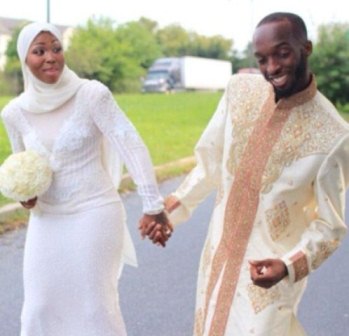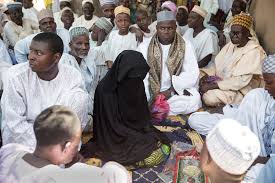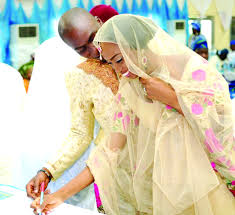


Islamic marriage like customary marriage is a polygamous one which allows the man to take up to four wives if he desires. It possesses most of the features of customary law marriage already discussed. The principal requirements of a valid Islamic law marriage are:
The parties to Islamic law marriage must freely consent to the union. However, under the Maliki School of Islamic Law, a father has the right to conclude a marriage on behalf of his infant sons and virgin girls. The ceremony is called the Ijbar. The exercise of this right may be ameliorated by the fact that the child has the option to repudiate the marriage contract on the attainment of the age of puberty. However, a father loses his right of Ijbar where he allows his daughter to choose a husband from among her suitors.

As in other systems of customary law, parental consent is necessary for the valid celebration of marriage under Islamic law.
Saduquat (Sadaki) or dower is the bride price received by the parents of the bride to be. It is the entitlement of the woman and not that of her parents, though it is paid through the parents.
The marriage needs to be solemnized by a Mallam in the presence of at least two upright Moslem witnesses.

The very foundation of every just and morally upright society is dependent upon the nature and success of the institution of marriage as reflected in that society. Though the concept and understanding of marriage may differ in different societies as is seen in Nigeria, where the law recognises three distinctly different types of marriages, it is important to note that these differences do not necessarily negate the importance and essence of marriage which is the union between a man and a woman.